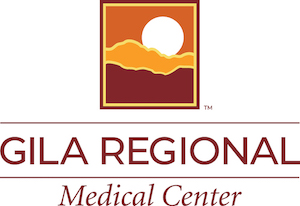 By Mary Alice Murphy
By Mary Alice Murphy
Early this morning, about 6 a.m., the emergency room of the Gila Regional Medical Center received a call from the Border Patrol telling them to expect up to 60 people arriving for medical care on Wednesday, Jan. 16, 2019.
Chief Executive Officer Taffy Arias said she received a text from Chief Nursing Officer soon after the call came in that the ER had been notified that they would get 62 patients, six to 10 at a time.
"I am most impressed," Arias said. "The ER immediately got organized and let other staff know so they would have backup, if needed. They set up a room to triage the patients more quickly. I huddled first thing this morning with the Chief Quality Officer (Tanya Carroccio), Chief Financial Officer (Richard Stokes), Marketing Director (Doug Oakes) and Risk Management Director (Angelia Peyton).
"We wanted to make sure we had the lab and radiology at the ready, if needed," Arias continued.
She said a hospitalist started looking at patients who would be discharged that day to determine how many beds would be available, again, if needed.
"Everything in the ER is extremely well controlled," Arias said. "When the first two patients came in, it was business as usual. I couldn't be more proud of our hospital."
She said that because the hospital is a county-owned facility, "it has a culture that goes with it. We take care of the community, no matter who they are, whether they are community leaders, people with money, people with no money, we just take care of them with open arms and compassion. We don't consider patients to ever be a burden. They are part of our lives and entrusted to us."
Arias and White said that the Border Patrol agents who bring the patients to them are professional, respectful and show compassion for those they are bringing in for health care.
"This morning, I had been invited to Lordsburg to visit their facility there," Arias said. "Because of the priority of our taking care of these patients and the hospital, I had to reschedule."
She noted that most of the patients are coming in with dehydration, exhaustion and some with respiratory issues.
"If we cannot care for them, as always, we have collaborations with other hospitals, so they accept them and provide the care we may not be able to," Arias said. "We have had no pushback regarding any transfer we have made."
White said: "Any time the hospital gets an influx like this we are ready and prepared. They come to us through Lordsburg from Antelope Wells. They are screened first and then transferred to us if they need more care."
It was about 10:30 when she said they had been notified that another group of 10 were on their way to GRMC.
"They are mostly families, often a parent and children," White said. "Some of the women need ob/gyn help. Sometimes, it's a mother with children and sometimes, a father with children."
She said the ER has staff members who are fluent in Spanish, and they have access to translation lines that are similar to Skype, where the translator and person in need of translation can see one another. "We have had some from Guatemala come in with a dialect, Mam. It took a couple of hours to find a translator for it, but we did. We have patients primarily coming from Guatemala, Honduras and Mexico."
"Border Patrol with two agents bring them in vans, six to 10 at a time," White said. "One of the things Richard focused on this morning is that everyone needs to know this is a humanitarian crisis. The Border Patrol agents need to be recognized for their selfless service."
White said she couldn't imagine what was going through the heads of those undertaking such a long, dangerous trip and why they were doing it.
Oakes said the nurses and staff are doing a great job. "They are willing and compassionate, offering excellent care no matter where the person comes from."
When asked about whether any were coming through with contagious diseases, White said they are screened for those at the border, such as tuberculosis. "We do see the flu, but we have the flu here. They may have gotten it after they crossed the border."
Oakes said the hospital has a protocol for contagious diseases.
White added malnutrition to the dehydration and exhaustion that most are needing to be treated for.
She and Arias wanted the community to know that even with the influx of extra folks in the ER, the hospital stands ready for anyone needing emergency care.